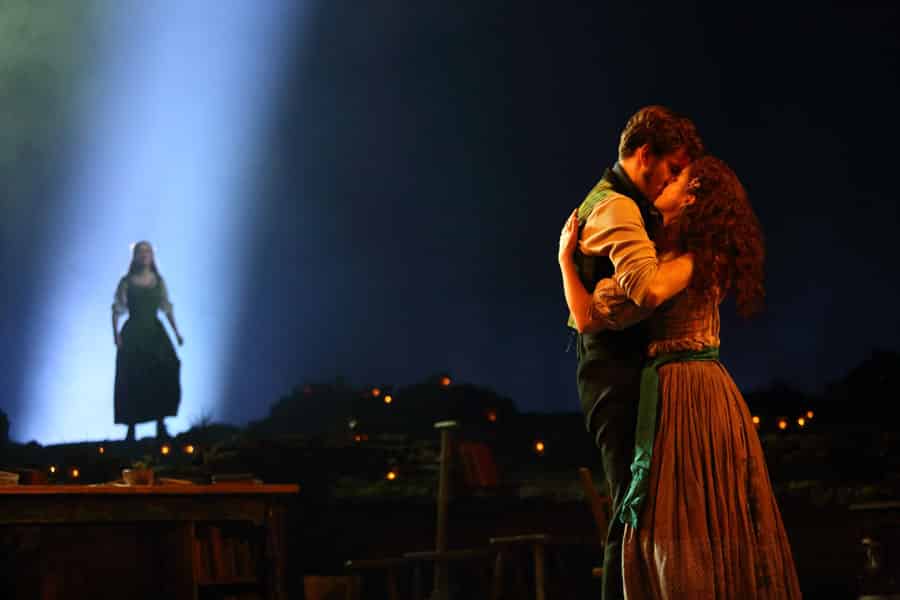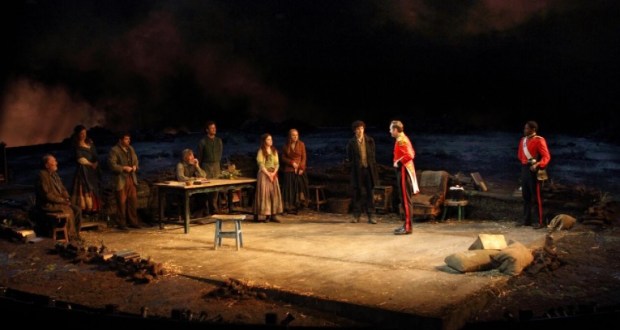The play opens in a Hedge school (a small community school in rural Donegal, Ireland) where an assortment of characters are learning Latin and Greek and a range of other subjects except English. The school is run by Manus (Seamus O’Hara) and his alcoholic father Hugh played majestically by Ciaran Hinds. We learn its future is in doubt, as it is soon to have competition from a new national school set up by the British Government – a sign of the changing times in this 1830’s set Ireland.
However, it is the return of Manus’s younger brother Owen (played by Fra Free) after six years in Dublin that drives the dramatic action in the play. He arrives in the village acting as translator to two soldiers who are tasked with creating a map for the local area.
The spitfire humour keeps the audience drawn into what is a rewarding
Britain’s role as coloniser is a strong theme throughout this play both through the anglicising of Irish place names but also through the disruptive, and later malevolent, presence of the soldiers. But the play is more far-reaching that just this theme.
Translations is a play for anyone who loves language. Writer, Brian Friel, plays with language in a variety of ways and the play celebrates the richness of language in the lyrical dialogue of its characters and the talented cast give the script real pace and bite.
Ian Rickson’s production also allows the complexities of the play to shine through. The work is a meditation on the purpose of language, how it shapes our past and present and the impact of languages on our personal relationships. The rough rural staging contrasts against the easy references to tales of opulent Greece and Rome. The playwright perhaps hinting at the power of language to transform realities.
Ian Rickson’s deft touch is most easily seen in an hilarious scene between two lovers who don’t speak the same language (although the audience hears them both speak English. In the play, one is speaking Irish and the other, English. This scene with Lieutenant Yolland (Jack Bardoe) and Maire (Sarah Madigan) shows the walls that language can place between individuals but also how emotional connection can transcend language barriers. The scene is a clever balance of humour and tenderness perfectly pitched by the two actors.
play and an example of brilliance from one of Ireland’s best playwrights.
Staging at the Olivier Theatre is nearly always a visual feast and Translations doesn’t disappoint. The rough, rural and earthy staging situates you firmly in the Donegal hills. The main section of the stage is bathed in a warm light that brings you into the intimacy of the play and the characters.
As the dialogue is so dense, there are times when it is a struggle to hear everything, particularly as characters switch between Latin, Greek and English words. However, the spitfire humour keeps the audience drawn into what is a rewarding play and an example of brilliance from one of Ireland’s best playwrights.



























